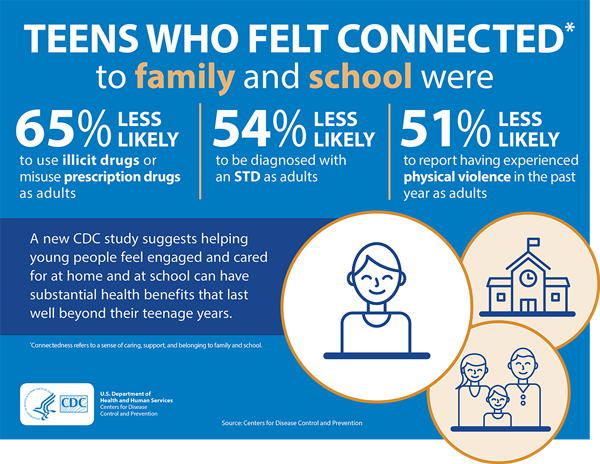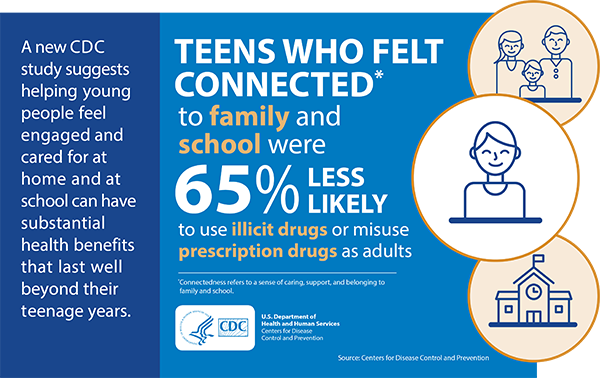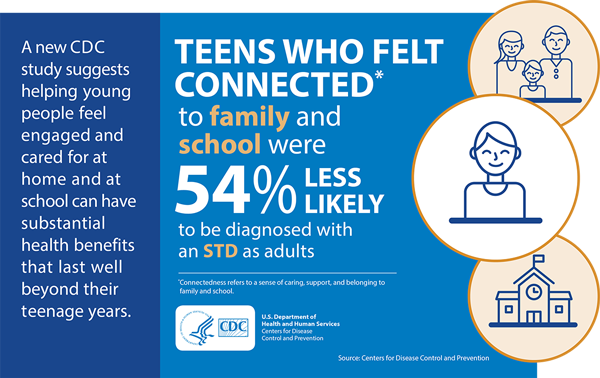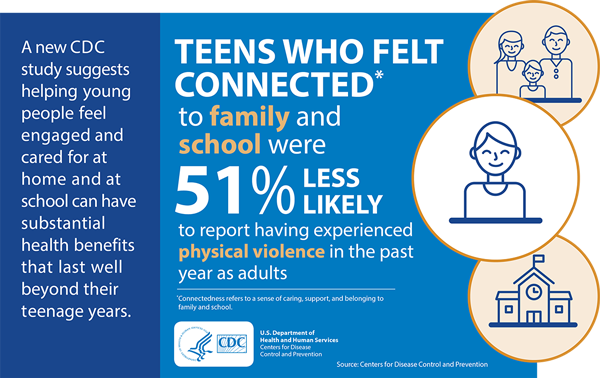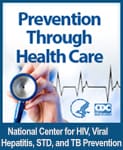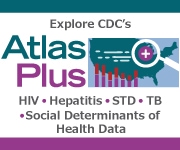Adolescent Connectedness and Adult Health Outcomes
June 24, 2019 – CDC study further suggests family and school support for youth protects against multiple health risks into adulthood
Prior studies have documented protective health effects of school and family connectedness in adolescence, but this new CDC study found that school and family connectedness in adolescence has protective effects for health risk behaviors and experiences related to mental health, violence, sexual health, and substance use well into adulthood.
- Press Release: CDC study further suggests family and school support for youth protects against multiple health risks into adulthood
- Article: Adolescent Connectedness and Adult Health Outcomesexternal icon
- Additional Resources: Adolescent Connectedness Has Lasting Effects
Graphics:
Adolescent Connectedness and Adult Health Outcomes
These high-resolution, public domain images are ready to download and print in your publication. Click on a graphic to see it in high-resolution. For your convenience, we have included a table that contains the specific data from the report used to generate these charts. These images are in the public domain and are thus free of any copyright restrictions. As a matter of courtesy, we ask that the content provider be credited and notified of any public or private usage of an image.
View High Resolution Versionimage icon
Helping young people feel engaged and cared for at home and at school — also called connectedness — may have substantial health benefits that last well beyond their teenage years, suggests a new CDC study.
View High Resolution Versionimage icon
Findings from the new study also show that school and family connectedness during adolescence has protective associations across a range of adult health outcomes related to mental health, violence, sexual behavior, and substance use. The study suggests when teens felt connected to family and school, they were 65 percent less likely to use illicit drugs or misuse prescription drugs as adults.
View High Resolution Versionimage icon
Findings from the new study also show that school and family connectedness during adolescence has protective associations across a range of adult health outcomes related to mental health, violence, sexual behavior, and substance use. The study suggests when teens felt connected to family and school, they were 54 percent less likely to be diagnosed with an STD as adults.
View High Resolution Versionimage icon
Findings from the new study also show that school and family connectedness during adolescence has protective associations across a range of adult health outcomes related to mental health, violence, sexual behavior, and substance use. The study suggests when teens felt connected to family and school, they were 51 percent less likely to report having experienced physical violence in the past year as adults.
